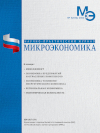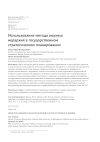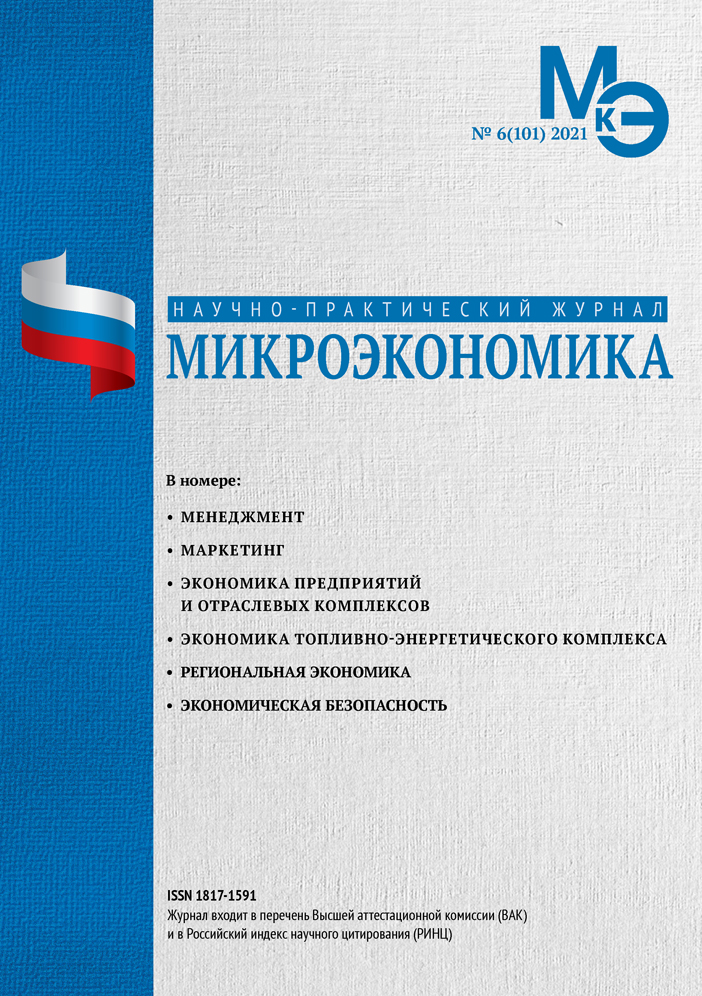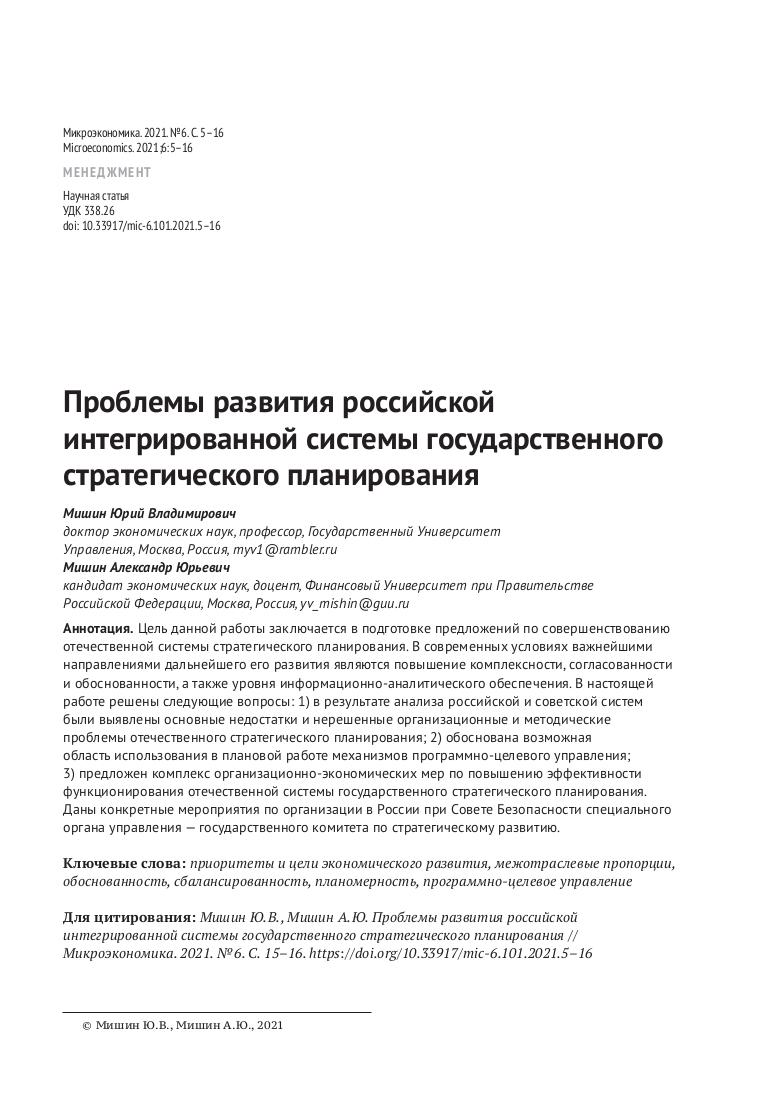Using the Hierarchy Analysis Method in state strategic planning
DOI: 10.33917/mic-5.106.2022.5-25
The purpose of this work is to prepare proposals for the further development and practical use in the Russian Federation of the methodology and tools of program-targeted management. The following issues are resolved in the article: 1) as a result of the analysis of domestic and foreign scientific sources, as well as regulatory documents of the Russian Federation in the field of strategic planning, its main shortcomings are identified and the main directions for further development are formulated; 2) a methodical approach is proposed for the development of state programs for the economic and social development of the country based on the method of analysis of hierarchies; 3) an example of the practical use of this method for solving the problem of substantiating the optimal size of import substitution of foreign components for the production of a short-haul narrow-body passenger aircraft Super Jet 100 is given.
References:
1. Indicative planning and implementation of regional policy / ed. A.B. Levinthal. M.: Finance and statistics, 2007. 326 p. (In Russ.).
2. Demidova L.G., Klimov S.M., Shcherbakovsky G.Z., Antonov A.G. Indicative planning: theory and ways of improvement. St. Petersburg: Knowledge, 2000. 230 p. (In Russ.).
3. Afonina I.A., Ivanova O.D., Panasevich O.E. About the conference “Strategic planning in the face of increasing external threats: the need to mobilize internal resources for the development of Russia” //Microeconomics. 2014;6:138-144. (In Russ.).
4. Buzgalin A. V., Kolganov A. I. Revival of planning, lessons (political and economic discourse // Problems of the theory of management practice. 2016;1:8-18. (In Russ.).
5. Buchwald E.M. Strategic unfinished construction; is the result visible? // STAGE. Economic theory, analysis, practice. 2017;6:33-47. (In Russ.).
6. Gaganov A.A. Does Russia have strategic planning? URL: http: rusrand. ru/analytics/est-li-v-rossii-strategicheskoe-planirovanie
7. Mishin Yu.V., Pisareva O.M., Mishin A.Yu., Alekseev V.A. Normative base of strategic planning: fundamentals, unresolved problems and directions of development. Monograph. Moscow: Nauka Publishing House, 2019. 404 p. (In Russ.).
8. Smirnova O.O. Paradigms and parallels. On the paradigm shift of a unipolar world in strategic planning // MIR (Modernization. Innovations. Development. 2014;3(19):107-110. (In Russ.).
9. Saaty T.L. Making decisions. Method of analysis of hierarchies. Moscow: Radio and communication, 1993. 241 p. (In Russ.).
10. Saaty T., Kerns K. Analytical planning. Organization of systems. M: Radio and communication, 1991. 224 p. (In Russ.).
11. Kartvelishvili V.M., Lebedyuk E.A. Hierarchy Analysis Method: Criteria and Practice. Bulletin of the Plekhanov Russian University of Economics. 2013;6:1-16. (In Russ.).
12. Romanov V.N. System analysis for engineers. St. Petersburg: SZGZTU, 2006. 186 p. (In Russ.).
13. Beshelev S.D., Gurvich F.G. Expert assessments. M.: Nauka, 1973. 158 p. (In Russ.).





